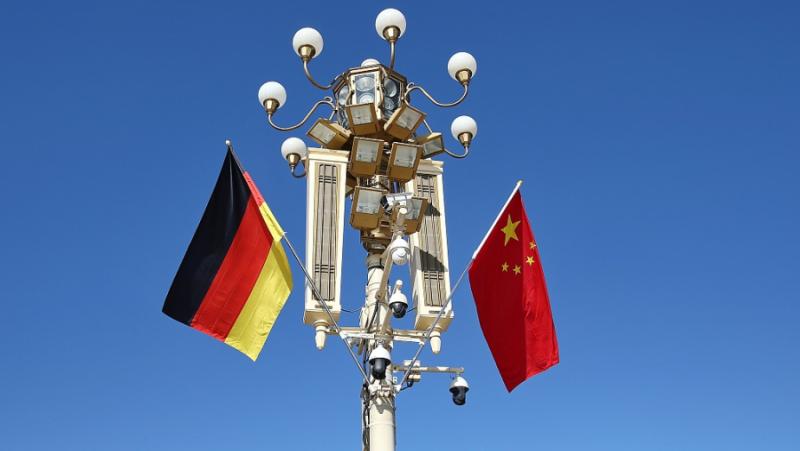/View.ifo/ China’s Minister of Commerce Wang Wentao met last week with high-ranking business representatives in Germany to promote the implementation of bilateral economic and trade agreements, maintain the stability of the industrial chain and supply chain, and strengthen cooperation in various fields. , such as electric cars and new energies.
China and Germany are complementary in terms of global industrial chain and supply chain, and have huge potential for expanding cooperation. According to commentators, the bilateral meetings will further strengthen trade-industry ties.
On Wednesday and Thursday, Minister Wang Wentao met separately with German business representatives in Berlin, including executives from the German Engineering Association, the German Chamber of Commerce and Industry, the ZEISS Group and TRUMPF, according to China’s Ministry of Commerce. Wang’s visit to Germany is part of his European tour.
During the meetings, Wang pointed out that China’s modernization process will provide a broad market with many cooperation opportunities for enterprises from Germany and other countries. German business representatives have expressed their firm confidence in cooperation with China, as well as their willingness to further expand trade, investment and explore more opportunities for development in the Chinese market.
On Wednesday, Wang Wentao had a conversation with Dirk Hilbert, the mayor of Dresden. The two discussed topics such as deepening trade between regions, promoting ecological and low-carbon transition and digital transformation, and strengthening cooperation in the field of electric vehicles and new energies.
On the same day, Minister Wan also met with Wolfgang Schmidt, head of the Federal Chancellery of Germany. They agreed to expand traditional cooperation while harnessing potential in emerging areas such as new energies and the digital economy. The two agreed on the need to create a fair environment for the work and development of Chinese and German businesses.
On Tuesday afternoon, Wang Wentao held a meeting in Munich with Markus Söder, Prime Minister of Bavaria. They discussed topics such as expanding bilateral trade and investment, maintaining the stability of the industrial chain and supply chain, and strengthening green and low-carbon cooperation.
China and Germany are important economic and trade partners, and their industrial and supply chains are deeply integrated, a Ministry of Commerce spokesman said in Beijing in March.
Zhang Xiang, a professor at Huanghu University of Science and Technology, cited electric cars as an example. “China is ahead in new energy vehicles and intelligent connected vehicles, while Germany is strong in traditional car manufacturing technology and precision machining. In the field of electric cars and new energy vehicles, China and Germany have strong complementarities and space for cooperation,” he points out. According to Zhang Xiang, German car manufacturers work with Chinese suppliers and vice versa.
A manager of a Chinese LiDAR supplier also points out that his company serves global automakers, including from Germany. “China’s manufacturing and R&D of LiDAR, which helps the vehicle to ‘sense’ and ‘understand’ its surroundings, has taken a global leadership position. If an automaker wants to equip its car with an autonomous driving system, it cannot avoid advanced LiDAR systems and products made in China,” he explains.
Over the years, Sino-German economic and trade cooperation has maintained a high-quality development momentum, said Chen Jia, an independent analyst. “China has established a long-term cooperation partnership with Germany’s leading high-tech industries. The two-sided manufacturing industrial chain is deeply integrated, especially in the high-precision processing of industrial equipment, parts and materials,” he says. Chen also noted that an effective division of labor has been established between China and Germany, leading to competitiveness in the global industrial chain.
According to statistics from China’s Ministry of Commerce, the country has been Germany’s largest trading partner for seven consecutive years, and Germany has been China’s largest trading partner in Europe for 48 consecutive years.
Two-way investment reached $51.4 billion in the first quarter of this year. By 2022, more than 5,000 German companies have invested in China and more than 2,000 Chinese companies have operated in Germany, official data shows.
One recent example is Volkswagen, which on April 18 announced plans to invest 10 billion euros to set up a new company in Hefei, Anhui province, to accelerate R&D and innovation in smart connected vehicles.
#Chinese #Minister #Commerce #discussed #cooperation #digital #economy #electric #vehicles #energies #Germany


